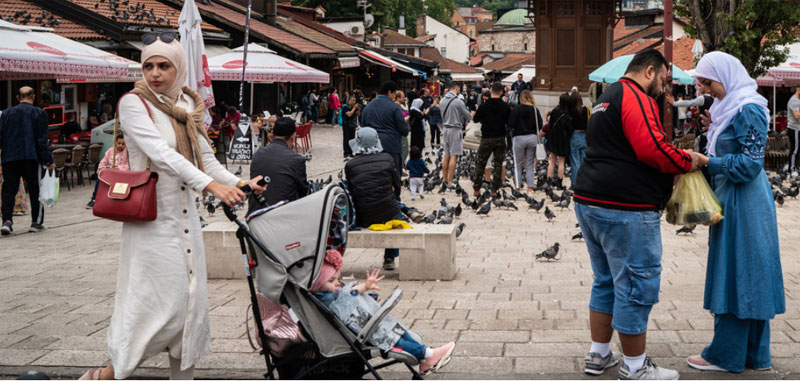 UN
UN
UN chief outlines ‘roadmap for inclusion’ to address root causes of conflict
New York: Diversity should be viewed as a powerful benefit, rather than a threat, particularly in countries experiencing conflict, UN Secretary-General António Guterres said on Tuesday, during a Security Council debate focused on the issue of inclusion.
The meeting, convened by Mexico, Council president for November, was held to examine the relation between the various root causes of armed conflict, such as inequality and poverty.
“Exclusion and inequalities of all kinds - economic, social and cultural - come with a devastating toll to security. Indeed, rising inequalities are a factor of rising instability,” said Mr. Guterres.
A stake in the future
The UN chief outlined a four-point “roadmap for inclusion”, urging countries to take greater action on the issues of people, prevention, gender and institutions.
“Without full inclusion and equality, peace is a job half done. Because true, sustainable peace, can only be carried forward by people who are supported, who are included and valued, who feel they are truly part of their society - and have a stake in its future,” he said.
The UN chief urged countries to invest in human development, and a “New Social Contract” that includes universal health coverage, social protection and safety nets, as well as COVID-19 vaccines for all.
Imagine the progress
He pointed out that last year, global military spending reached its largest annual increase since 2009, and is now nearing two trillion dollars annually.
“Imagine the progress we could make - the peace we could build, the conflicts we could prevent - if we dedicated even a fraction of this to human development, equality and inclusion,” he said.
The UN chief called for strengthening prevention on multiple fronts to address different types of exclusion and inequities, with particular focus on gender and youth, including during peace processes.
Women and peacebuilding
Ending inequalities and exclusion is also critical to achieving sustainable development, he added, while priority must also be given to the crucial role of women in building peace.
“We can draw a straight line between violence against, and exclusion of, women and civil oppression and violent conflict,” he said.
“From rape and sexual slavery being used as tools of war. To the thread of misogyny that runs through violent extremist thought. To the exclusion of women from positions of leadership and in peace processes.”
The Secretary-General highlighted how the UN continues to stand up for the rights of women and girls around the world.
“This includes in Afghanistan, where we continue to work with the de facto authorities to keep girls in school, and ensure that women can fully participate in civil and economic life,” he added.
Equal rights and justice
For his final point, the Secretary-General stressed the need to build trust through national institutions rooted in human rights and the rule of law.
“This means justice systems that apply to all people, equally - not only the rich or those holding the reins of power,” he said.
“It means building institutions resilient to corruption and abuse of power - founded on principles of integrity, transparency and accountability.”
At the same time, he stressed that policies and laws should protect vulnerable groups, while security and rule-of-law institutions should be responsive to the needs of all people.
Global fraternity plan
In his remarks, Mexican President Andrés Manuel López Obrador said his country will soon propose the establishment of a World Plan of Fraternity and Wellbeing that would guarantee a decent life for the 750 million people worldwide who survive on less than two dollars a day.
Financing for the plan would come from at least three sources: an annual voluntary contribution from the world’s 1,000 richest people of four per cent of their income; a similar contribution from the 1,000 largest private corporations, and two per cent of the Gross Domestic Product (GDP) of each of the G20 leading industrial nations.
President López Obrador estimated this would generate around one trillion dollars each year. He stressed that the funds should reach beneficiaries directly and without any intermediaries.
Support Our Journalism
We cannot do without you.. your contribution supports unbiased journalism
IBNS is not driven by any ism- not wokeism, not racism, not skewed secularism, not hyper right-wing or left liberal ideals, nor by any hardline religious beliefs or hyper nationalism. We want to serve you good old objective news, as they are. We do not judge or preach. We let people decide for themselves. We only try to present factual and well-sourced news.







